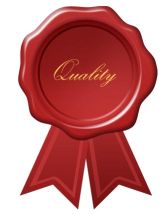
e-mail: "bjbarhop@aol.com, web page
www.BobTheBarGuy.com
“There Is a World of Difference Between ‘Running’ a Bar and ‘Managing’ a Bar.”
Part 1:
Many people get into the bar business thinking they are going to be great owners/ managers and will naturally be good at this line of work.
Unfortunately, in many cases, their egos will prevent this from happening. If only these people would just set their egos aside
and say, “I’m obviously a very talented individual. I could become good at owning or managing a bar, but I have to be willing to learn. I have to be willing to open my mind to the possibility that I’m wrong and to listen to other people—especially the qualified professionals.” To paraphrase from an article written by professional poker player Annie Duke, in USA Today: Commenting on why CEO’s make lousy poker players, she says, “Their egos get in the way.”
Well, most owners/managers of bars make lousy operators (and poker players) for the same reason. This is a tough realization for someone to accept, particularly someone who has risen to the top in another profession. “Don’t tell me what to do! After all, I’ve been in business for 27 years!” or, “Running a bar is not rocket science—anyone can do it!” or, “Hey, I own this joint! Who are you?!”
Well, I’m here to tell you that there is a world of difference between “running a bar” and “managing a bar.” Anyone can own or run a bar, but very few can correctly operate and manage one. Don’t kid yourself—you don’t just walk in, take over, and start
telling staff what to do. You have to know what you’re talking about. Just because you may have been successful in another business does not mean you will be successful in the bar business.
If you think owning or managing a bar is easy, continue reading. Bar management skills are learned, not inherited. I think you’ll eventually come to the profound realization that you really have to know what you’re doing. Making too many mistakes because you don’t know what you’re doing could possibly put you in jail, out of a job, and out of a lot of money.
Before anyone decides to buy a bar or take a step up to management, I suggest you put your ego aside and read the following pages about what it takes to be successful in the bar business. Trust me—this is a difficult business, and it’s not for everyone.
MANAGEMENT
Bar manager is a skill position that requires years of careful
observation, studying, experience, and know-how; yet, its importance has long been underestimated by owners in the hospitality industry. Even hospitality management schools place little importance on the subject of bar management, often making it an elective rather than a requirement for students graduating with what is considered food and beverage proficiency. Their definition of proficiency typically centers on knowledge of wine—which is nice, but has little to do with a nightclub or bar.
Before a head bartender or an entry-level manager accepts the job of bar manager, they should have a complete understanding of what the job entails. And, yes, bar managers should be former
bartenders. An in-depth knowledge of professional bartending is the starting point from which one learns bar management. It’s hard to be a truly effective bar manager unless you have a complete understanding of how to tend bar. “The gift of gab,
the casualness, and the caring, friendly service a bar manager gives to his customers comes from a bartending background,” says Bob Schwenker, former General Manager of Hooligan’s Pub in Miami, Florida. “A good bar manager has the ability to
make people feel comfortable. You shouldn’t make
the progression to bar manager without being a
bartender first.”

 The purchasing department is the linchpin when it comes to reducing costs. It is much easier to control costs in this area than anywhere else in the operation. The bottom line is that astute buying techniques offer the best opportunity for a business to increase its overall profits.
The purchasing department is the linchpin when it comes to reducing costs. It is much easier to control costs in this area than anywhere else in the operation. The bottom line is that astute buying techniques offer the best opportunity for a business to increase its overall profits.

